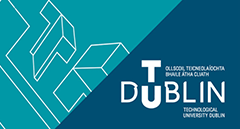Abstract
Despite a global expansion of higher education in the twentieth century, inequalities in terms of student demographic still remain. The number of mature students (students aged 23 years and over) and students from lower socio-economic backgrounds in full-time higher education in the Republic of Ireland remains low. In order to address this issue, Dublin Institute of Technology (DIT) offered a one-year Access Foundation programme providing a route to higher education for mature students and young adults (students less than 23 years) from lower socioeconomic backgrounds. This study examines the factors affecting the progression of students on this programme to undergraduate studies at DIT. In 2017, incoming Access Foundation students (n = 59) completed a 29-item questionnaire examining factors affecting progression, and their advancement onto undergraduate studies was chartered at the end of the academic year. Analysis of this data revealed a number of noteworthy findings such as a relationship between attendance and progression. Students who failed to progress also had higher neuroticism scores and intrinsic and extrinsic motivation mean scores than students who progressed to undergraduate studies at DIT. Furthermore, progression was dependent on the optional modules students chose. These findings have implications for funding and providing support services for Access Foundation students.
Creative Commons License

This work is licensed under a Creative Commons Attribution-NonCommercial 4.0 International License
Recommended Citation
Forster, Annette; Faulkner, Fiona; and Prendergast, Mark
(2020)
"Access Foundation Student Progression at Technological University Dublin: a Quantitative Study,"
Irish Journal of Academic Practice:
Vol. 8:
Iss.
1, Article 3.
doi:https://doi.org/10.21427/40tj-ra59
Available at:
https://arrow.tudublin.ie/ijap/vol8/iss1/3
DOI
https://doi.org/10.21427/40tj-ra59

